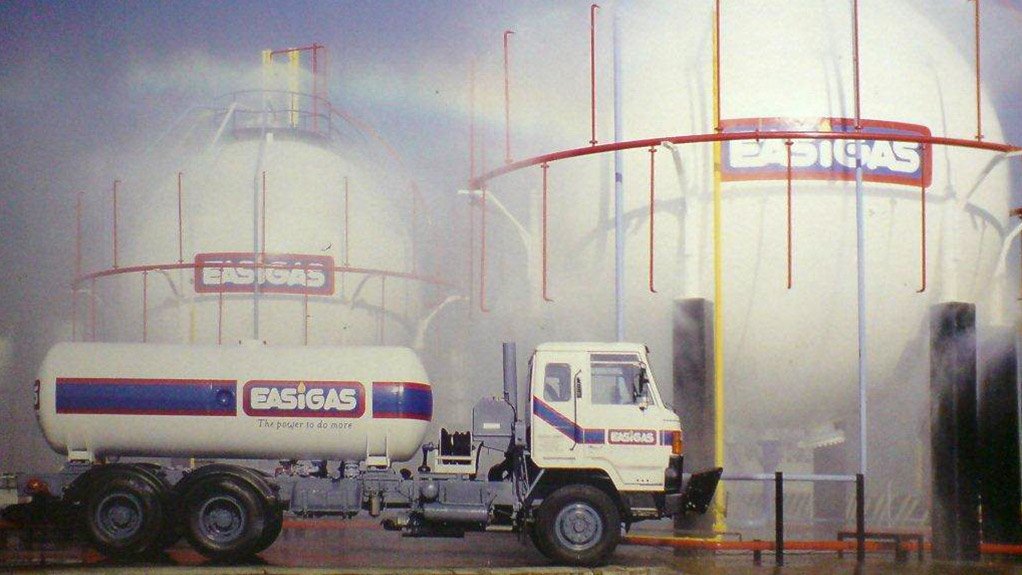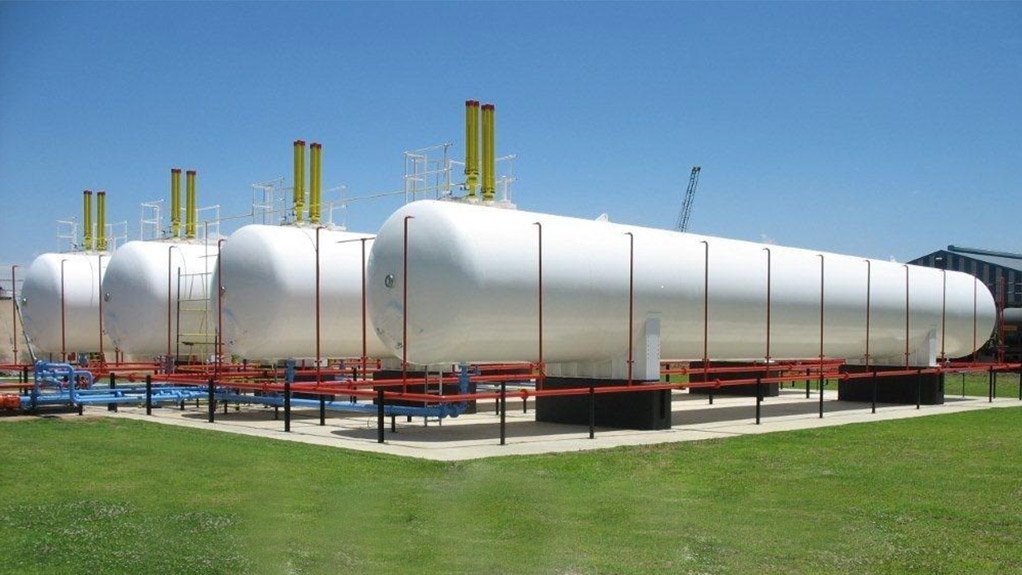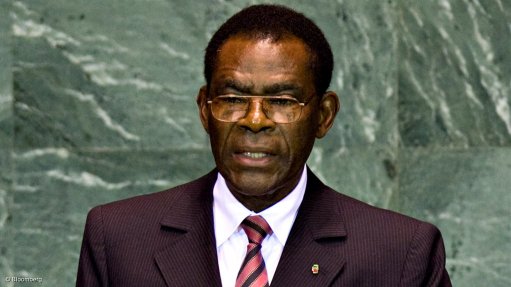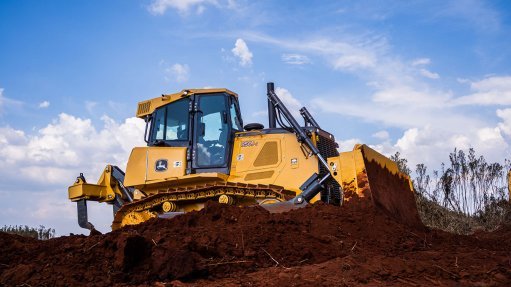Govt engages gas company, LPG suppliers under pressure



ENGAGING GOVERNMENTIn its discussions with the Parliamentary Portfolio Committee on Energy, Easigas has proposed that the Department of Energy revise its policy of pricing imports of liquefiable petroleum gas based on petroleum prices
IMPORTANT PRODUCT USESLiquefiable petroleum gas is commonly used in mines to power smelting furnaces that are processing materials, such as platinum and vanadium, as well as domestically for cooking
The Parliamentary Portfolio Committee on Energy (PCE) met with liquefied petroleum gas (LPG) supplier Easigas earlier this month at the company’s Bellville depot, in the Western Cape, to discuss pertinent industry matters.
“These related to infrastructural and supply chain challenges; the distinction between industrial, commercial and domestic consumption; the impact of recent changes on LPG pricing structures; as well as general industry challenges and industry prospects,” Easigas marketing and customer services centre manager Lorraine van Wyk tells Engineering News.
She says the Department of Energy (DoE) will present a draft Energy Bill to Parliament in November, while the PCE is engaging with all stakeholders, including Easigas, on the Bill’s content.
Easigas, in its discussions with the PCE, has proposed that the DoE revise its policy of pricing imports of LPG based on petroleum prices, which limits this pricing to motor gasoline (mogas) 93 octane at present, and instead base the import price of LPG on an international benchmark, following the example of Saudi Arabian oil company Saudi Aramco.
Van Wyk stresses that this is extremely important in a country such as South Africa, which currently has to import LPG and cannot rely solely on local refinery supply.
In January 2010, Easigas was bought from global fossil fuels major Royal Dutch Shell by France-based storage, distribution and supplier of LPG company Rubis.
Van Wyk points out that Easigas has operations throughout Southern Africa, including South Africa, Lesotho, Botswana and Swaziland.
“Because of State-owned power utility Eskom’s limited electricity supply, significant emphasis has been placed on alternative energies such as LPG,” says Van Wyk.
She explains that LPG is a mixture of propane and butane molecules and is used for various purposes, including space heating.
“LPG is commonly used in mines to power smelting furnaces that are processing mate- rials, such as platinum and vanadium, as well as domestically for cooking,” states Van Wyk, who adds that LPG is prepared through refining oil.
Supply Challenges
Van Wyk explains that the components of LPG (propane and butane) are found throughout the oil refining process used to produce petroleum products.
Supplies of LPG will be further limited, she says, as government has embarked on a cleaner-fuels project, which requires more propane and butane molecules to be used in the refining process to produce cleaner fuels.
As a result, the local supply of LPG has been placed under significant pressure.
However, Van Wyk states that Easigas recognises the importance of cleaner fuels and fully supports government’s programme of making South African fuels more environment friendly.
“South Africa is a net importer of LPG, as local refineries do not have sufficient capacity to meet local demand,” explains Van Wyk, highlighting that the country only has three LPG importing facilities – the Richards Bay and Durban ports, in KwaZulu-Natal, and the Port Elizabeth port, in the Eastern Cape.
Easigas’s LPG storage facilities are located at the Port Elizabeth port. The company has two spheres, with a total storage capacity of about 1.1 kilotons.
Additionally, Van Wyk says, owing to the refineries in South Africa having been in existence for more than 35 years, this imposes additional challenges related to unplanned shutdowns, which constrains the ability of refineries to supply LPG.
“South African refineries have sufficient storage capacity for petroleum; however, they do not have sufficient storage capacity for LPG. Therefore, this places the burden of investing in sufficient storage capacity on LPG distributors and marketers such as Easigas,” she notes.
“Easigas’s holding company, Rubis, is willing to invest about R300-million in an import facility with greater storage capacity to enable Easigas to meet local demand. However, until government gives us clarification on when the Port Elizabeth port through which Easigas currently imports will be shut down, the company is in a quandary as to how to best proceed,” bemoans Van Wyk.
She says if the company does not receive clarity on these issues, it may have to consider importing LPG from neighbouring countries’ ports, such the Port of Maputo, in southern Mozambique, or the Port of Walvis Bay, in Namibia.
Pricing Concerns
The domestic LPG price is regulated through the DoE by Energy Minister Ben Martins.
Van Wyk says the Maximum Refinery Gate Price (MRGP), under Section 2 (1) (c) of the Petroleum Products Act No 120 of 1977, stipu- lates that any company buying LPG from a local refinery can be charged only at a maximum tariff as prescribed by the MRPG.
“If every local refinery limits its pricing to the MRPG scales, the cost impact on LPG suppliers will not be as significant as it is at present,” she notes.
Some refineries charge an administration fee, which, Van Wyk says, is in addition to the prescribed MRPG tariffs, while other local refineries charge an administration fee, a gantry fee and a transport fee.
Moreover, in July 2010, the DoE imposed a cap on what retailers and suppliers could charge domestic users for LPG.
In accordance with Section 3 of the Draft Revised Maximum Refinery Gate Price of Liquefied Petroleum Gas (Gazette 35818, Notice 886), the DoE has started to regulate the maximum retail price of LPG supplied to residential customers in view of the unreasonably high prices that consumers were paying for LPG.
However, Van Wyk says, owing to these tight restrictions on prices charged by distribu- tors of LPG, the company has had to bear the burden of these costs, as it cannot, by law, pass on these expenses to domestic LPG consumers.
The Working Rules to Set the Monthly Maximum Retail Price for LPG document states that, once a year, effective April 1 every year, companies may apply to factor in the additional costs into the MRGP. Prior to this date, LPG companies must make submissions to the DoE concerning additional operating costs, such as increases in salaries or the petrol costs of running the company’s vehicle fleet.
However, Van Wyk points out that despite Easigas making several applications, it has not received any increments since June 2010.
Easigas also imports LPG, which involves import duties, freight fees, possible demurrage fees because of full ports, bunkering fees and terminal charges.
Van Wyk emphasises that, in terms of the regulations stipulated by the DoE, all these additional operational costs cannot be recovered from domestic LPG consumers.
“The legislation and regulations relating to LPG are out of kilter with the operational realities of the LPG industry and, if these are not altered soon, the impact on local LPG suppliers may be quite catastrophic,” she concludes.
Comments
Announcements
What's On
Subscribe to improve your user experience...
Option 1 (equivalent of R125 a month):
Receive a weekly copy of Creamer Media's Engineering News & Mining Weekly magazine
(print copy for those in South Africa and e-magazine for those outside of South Africa)
Receive daily email newsletters
Access to full search results
Access archive of magazine back copies
Access to Projects in Progress
Access to ONE Research Report of your choice in PDF format
Option 2 (equivalent of R375 a month):
All benefits from Option 1
PLUS
Access to Creamer Media's Research Channel Africa for ALL Research Reports, in PDF format, on various industrial and mining sectors
including Electricity; Water; Energy Transition; Hydrogen; Roads, Rail and Ports; Coal; Gold; Platinum; Battery Metals; etc.
Already a subscriber?
Forgotten your password?
Receive weekly copy of Creamer Media's Engineering News & Mining Weekly magazine (print copy for those in South Africa and e-magazine for those outside of South Africa)
➕
Recieve daily email newsletters
➕
Access to full search results
➕
Access archive of magazine back copies
➕
Access to Projects in Progress
➕
Access to ONE Research Report of your choice in PDF format
RESEARCH CHANNEL AFRICA
R4500 (equivalent of R375 a month)
SUBSCRIBEAll benefits from Option 1
➕
Access to Creamer Media's Research Channel Africa for ALL Research Reports on various industrial and mining sectors, in PDF format, including on:
Electricity
➕
Water
➕
Energy Transition
➕
Hydrogen
➕
Roads, Rail and Ports
➕
Coal
➕
Gold
➕
Platinum
➕
Battery Metals
➕
etc.
Receive all benefits from Option 1 or Option 2 delivered to numerous people at your company
➕
Multiple User names and Passwords for simultaneous log-ins
➕
Intranet integration access to all in your organisation



















